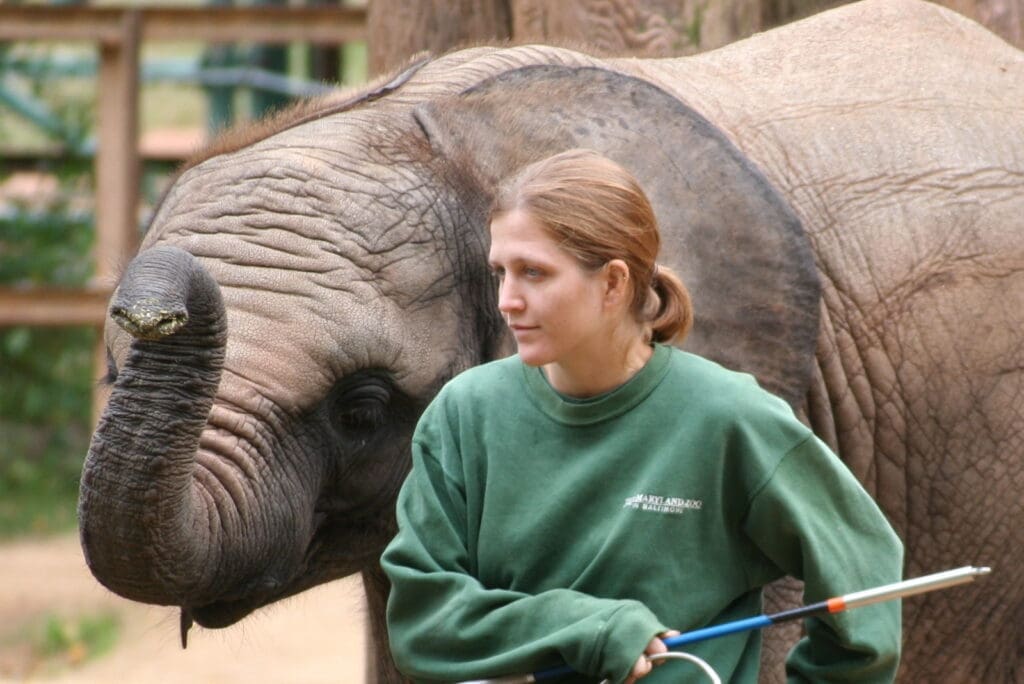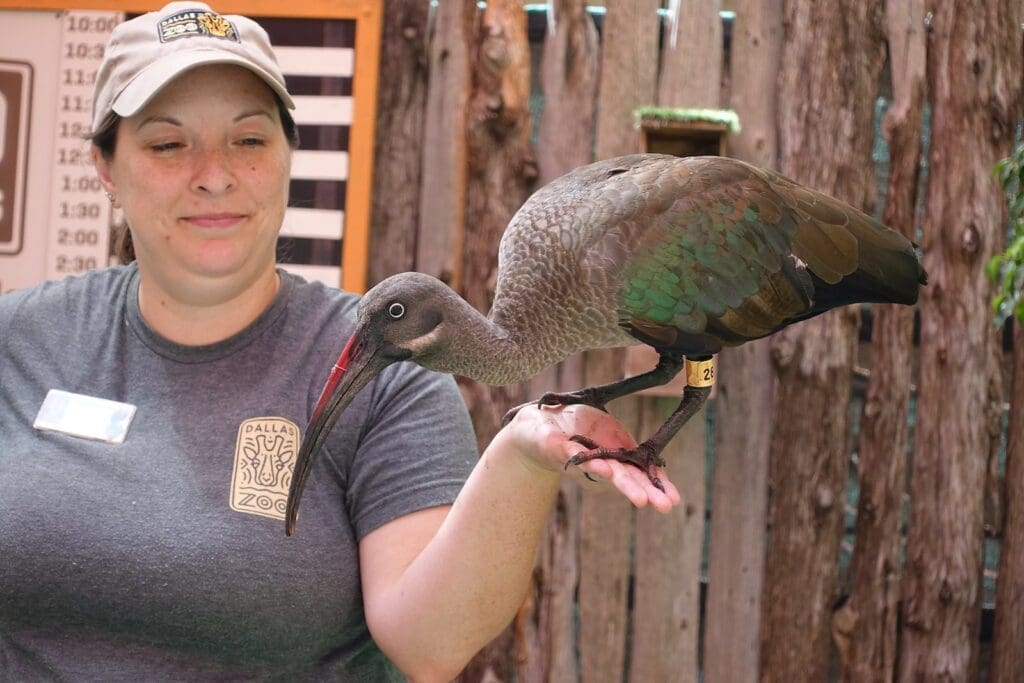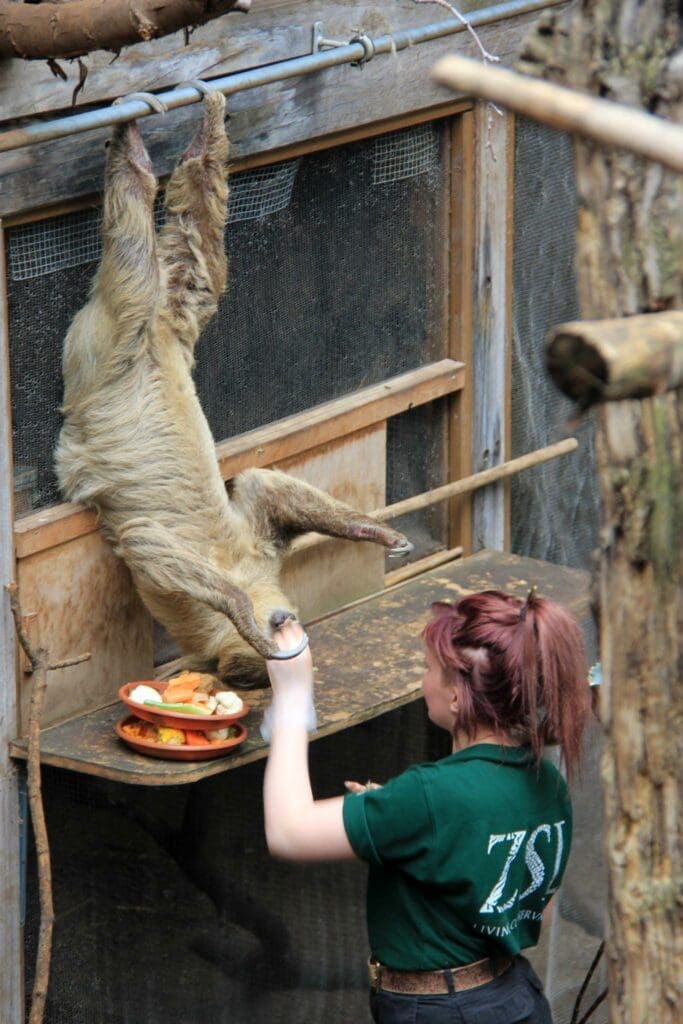
Zoos are fascinating places that attract millions of visitors every year, but have you ever wondered what it takes to work at one? There are a variety of careers available in the world of zoos, ranging from animal care and education to research and conservation. If you’re passionate about animals and want to make a difference in their lives, a career in a zoo might be the perfect fit for you.
Getting involved in the world of zoos can be a rewarding experience, but it can also be competitive and challenging. Depending on the career path you choose, you may need to have a certain level of education and experience to be considered for a position. However, with the right skills and qualifications, you can build a successful career in a zoo and make a positive impact on the lives of animals and visitors alike. In this article, we’ll explore the different types of zoo careers available and provide tips on how to get started in this exciting field.
Understanding Zoo Careers
Working in a zoo can be a fulfilling career path for those who love animals and want to make a difference in conservation efforts. Zoo careers can encompass a wide range of job opportunities, from animal care to education and research. Understanding the different roles and responsibilities within a zoo can help individuals determine which career path is right for them.
Zoo careers typically require a strong commitment to animal welfare and conservation efforts. Many roles involve working directly with animals, such as zookeepers and veterinary staff. These positions require a deep understanding of animal behavior, nutrition, and health, as well as the ability to provide daily care and enrichment for zoo animals.
In addition to animal care roles, there are also opportunities in education and research within a zoo. Education staff may develop and lead programs for visitors, school groups, and community organizations, while research staff may conduct studies on animal behavior and conservation efforts.
Job opportunities within a zoo can vary depending on the size and type of facility. Large zoos may have more specialized roles, such as animal trainers or exhibit designers, while smaller zoos may require staff to perform a wider range of duties.
Overall, a career in a zoo can be a rewarding way to make a difference in the lives of animals and contribute to conservation efforts. With a wide range of job opportunities available, individuals can find a career path that aligns with their interests and skills.
Education and Training
To pursue a career in the world of zoos, it is important to obtain the necessary education and training. This section will cover some of the undergraduate studies and internship programs that can help individuals acquire the knowledge and skills needed for a successful career working with animals.
Undergraduate Studies
Many colleges and universities offer undergraduate programs in animal science, biology, zoology, or a related field. These programs typically provide students with a broad understanding of animal behavior, physiology, and ecology. Some programs may also offer courses specifically focused on zoo management and animal care.
In addition to traditional classroom learning, many undergraduate programs also offer hands-on experiences through laboratory work, field trips, and research projects. These experiences can help students gain practical skills and real-world experience working with animals.
Internship Programs
Internship programs can provide valuable hands-on experience and networking opportunities for individuals interested in pursuing a career in the zoo industry. Many zoos and aquariums offer internship programs that allow students and recent graduates to work alongside experienced professionals and gain practical experience in animal care, exhibit design, education, and more.
Internship programs may vary in length and requirements, but most require applicants to be at least 18 years old and have completed some college coursework in a related field. Some programs may also require a minimum GPA or specific coursework.
Overall, obtaining the necessary education and training can be a critical step in pursuing a successful career in the world of zoos. Undergraduate studies and internship programs can provide individuals with the knowledge, skills, and practical experience needed to excel in this field.
Career Paths in Zoos
If you are interested in working in a zoo, there are various career paths you can take. Depending on your interests and qualifications, you can pursue a career as a zookeeper, veterinarian, animal curator, conservation biologist, aquarist, or development director.
Zoo Keeper
Zookeepers are responsible for the daily care and management of animals in the zoo. They feed, clean, and provide medical care to animals, as well as maintain their habitats. Zookeepers also educate visitors about the animals and their behavior. To become a zookeeper, you typically need a degree in zoology, biology, or a related field. Experience working with animals is also essential.
Veterinarian
Veterinarians in zoos are responsible for the medical care of animals. They diagnose and treat illnesses and injuries, perform surgeries, and provide preventive care. Veterinarians also work closely with zookeepers and animal curators to ensure that the animals receive the best possible care. To become a veterinarian in a zoo, you need a degree in veterinary medicine and a license to practice. Additional training and experience in zoological medicine are also recommended.
Animal Curator
Animal curators are responsible for the overall management of animals in the zoo. They develop and implement animal care policies, oversee animal breeding programs, and work with other zoo staff to ensure that the animals receive the best possible care. To become an animal curator, you typically need a degree in zoology, biology, or a related field. Experience working with animals and management experience are also essential.
Conservation Biologist
Conservation biologists in zoos work to protect endangered species and their habitats. They conduct research on animal behavior, genetics, and ecology, and develop conservation strategies to help preserve species. Conservation biologists also work with other zoo staff and conservation organizations to implement conservation programs. To become a conservation biologist in a zoo, you typically need a degree in biology, ecology, or a related field. Experience in conservation biology and research is also essential.
Aquarist
Aquarists in zoos are responsible for the care and management of aquatic animals, such as fish, turtles, and marine mammals. They maintain aquariums and other aquatic habitats, feed and care for animals, and monitor water quality. Aquarists also educate visitors about aquatic animals and their behavior. To become an aquarist in a zoo, you typically need a degree in marine biology, zoology, or a related field. Experience working with aquatic animals is also essential.
Development Director
Development directors in zoos are responsible for fundraising and development activities. They develop fundraising strategies, cultivate donor relationships, and oversee grant writing and other fundraising activities. Development directors also work with other zoo staff to develop and implement programs and initiatives that support the zoo’s mission. To become a development director in a zoo, you typically need a degree in business, marketing, or a related field. Experience in fundraising and management is also essential.
There are many career opportunities in zoos, and each career path requires different qualifications and experience. Whether you are interested in animal care, conservation, or fundraising, there is a career path in zoos that can match your interests and skills.

Responsibilities and Duties
Working in a zoo involves a wide range of responsibilities and duties. Zoo staff must be committed to the welfare of animals and the conservation of species. Here are some of the key responsibilities and duties of zoo careers:
Animal Care
One of the most important responsibilities of zoo staff is to provide daily care to zoo animals. This includes feeding, bathing, grooming, and exercising animals to maintain their health and wellbeing. Zoo staff must also monitor animals for signs of illness or injury and provide medical care when necessary.
Cleaning and Maintenance
Zoo staff are responsible for maintaining zoo facilities, including cleaning out exhibits, performing landscaping duties, and moving animals to different exhibits to fit their needs best. They must also ensure that all facilities are clean and safe for both animals and visitors.
Education and Outreach
Zoo staff play a crucial role in educating the public about animals and conservation. They may give tours, lead educational programs, or work with schools to provide educational resources. Zoo staff must be knowledgeable about the animals in their care and be able to share that knowledge with others.
Research and Conservation
Many zoos are involved in research and conservation efforts to protect endangered species and their habitats. Zoo staff may work on research projects, participate in breeding programs, or work with conservation organizations to protect wildlife.
Overall, working in a zoo requires a commitment to responsible animal care, cleaning and maintenance, education and outreach, and research and conservation. Zoo staff must be dedicated, knowledgeable, and hardworking to succeed in this rewarding career.
Getting Involved in Zoos
Zoos are a great place for animal lovers to get involved and learn more about the care and conservation of various species. There are several ways to get involved in zoos, including membership, volunteering, and attending events and experiences.
Membership and Volunteering
One way to get involved in zoos is through membership and volunteering. Becoming a member of a zoo provides several benefits, including free admission, discounts on events and experiences, and access to exclusive member-only events. Memberships can also support the zoo’s conservation efforts and animal care programs.
Volunteering at a zoo is another way to get involved and make a difference. Volunteers can assist with animal care, education programs, and special events. Volunteering can be a great way to gain experience and knowledge in the field of animal care and conservation.
Events and Experiences
Attending events and experiences at a zoo can also be a great way to get involved and learn more about the animals and conservation efforts. Many zoos offer behind-the-scenes tours, animal encounters, and educational programs for visitors. These experiences can provide a unique insight into the world of animal care and conservation.
Zoos also host special events throughout the year, including fundraisers, holiday celebrations, and animal-themed events. These events can be a fun way to support the zoo’s conservation efforts while enjoying a unique and memorable experience.
In conclusion, getting involved in zoos can be a rewarding experience for animal lovers. Whether through membership, volunteering, or attending events and experiences, there are several ways to support the care and conservation of various species.
Zoo Operations
Zoo operations involve the daily management and maintenance of a zoo’s physical plant and equipment. This includes managing the animals’ habitats, ensuring their health and safety, and providing visitors with an enjoyable and educational experience.
One critical aspect of zoo operations is animal training. Animal trainers work closely with the animals to teach them behaviors that will help them thrive in captivity. They also work with the animals to prepare them for medical procedures and to ensure they are comfortable with zookeepers and veterinarians.
Communication is also essential in zoo operations. Zookeepers and other staff members must communicate effectively with each other to ensure the animals receive the proper care and attention they need. They must also communicate with visitors to educate them about the animals and the importance of conservation efforts.
Overall, zoo operations require a team of dedicated professionals who are committed to providing the best possible care for the animals while also creating a memorable experience for visitors.

Conservation Efforts in Zoos
Zoos play an essential role in wildlife conservation efforts, serving as a bridge between animals and humans. Many zoos have dedicated conservation programs that focus on preserving endangered species and their habitats. These programs aim to raise awareness about the importance of wildlife conservation and promote sustainable solutions for species and ecosystem survival.
Conservation efforts in zoos involve various activities, including research, education, and advocacy. Zoos conduct research to better understand the behavior, ecology, and physiology of animals in their care. This knowledge helps zoos develop better husbandry practices, breeding programs, and reintroduction strategies for endangered species.
Zoos also play a critical role in educating the public about wildlife conservation. Many zoos offer educational programs, exhibits, and events that highlight the importance of conservation and inspire visitors to take action to protect wildlife. Through these programs, zoos aim to create a sense of connection and empathy between visitors and animals, fostering a greater appreciation for the natural world.
In addition to research and education, zoos also engage in advocacy efforts to promote wildlife conservation. Zoos work closely with government agencies, non-profit organizations, and other stakeholders to shape policy and develop conservation strategies. Zoos also participate in international conservation initiatives, such as the Convention on International Trade in Endangered Species of Wild Fauna and Flora (CITES), to help protect endangered species and their habitats.
Overall, conservation efforts in zoos are essential for the preservation of wildlife and their habitats. By conducting research, educating the public, and advocating for conservation, zoos play a crucial role in protecting endangered species and promoting sustainable solutions for species and ecosystem survival.
FAQs About Zoo Careers
Working in a zoo can be a dream job for many animal lovers. However, it can be challenging to know where to start or what to expect. Here are some frequently asked questions about zoo careers:
What are some common zoo jobs?
Zoos employ a wide range of professionals, from animal caretakers to veterinarians, educators, researchers, and administrative staff. Some common zoo jobs include:
- Animal caretakers: responsible for the daily care and well-being of animals
- Zookeepers: responsible for the care of a specific group of animals
- Veterinarians: responsible for the health and medical care of animals
- Educators: responsible for teaching visitors about animals and conservation
- Researchers: responsible for conducting scientific studies on animals and their behavior
- Administrators: responsible for managing the business and financial operations of the zoo
What education and training are required for zoo jobs?
The education and training required for zoo jobs vary depending on the position. Some entry-level positions may require only a high school diploma or equivalent, while others may require a college degree in a related field such as biology, zoology, or animal science. Some positions may also require certification or specialized training.
What skills and qualities are necessary for zoo jobs?
Working in a zoo requires a combination of technical skills and personal qualities. Some essential skills and qualities for zoo jobs include:
- Knowledge of animal behavior and care
- Physical fitness and stamina
- Communication and interpersonal skills
- Problem-solving and decision-making skills
- Attention to detail and ability to follow procedures
- Passion for animals and conservation
What are the salary and job outlook for zoo careers?
Salaries for zoo jobs vary depending on the position, location, and experience. According to the Bureau of Labor Statistics, the median annual wage for animal caretakers was $25,980 in May 2020. The job outlook for zoo careers is good, with a projected 22% growth rate for animal care and service workers from 2019 to 2029.
How can one get started in a zoo career?
Getting started in a zoo career may involve gaining experience through internships or volunteer work, pursuing a degree in a related field, or starting in an entry-level position and working up through the ranks. Networking and building relationships with people in the industry can also be helpful in finding job opportunities.




